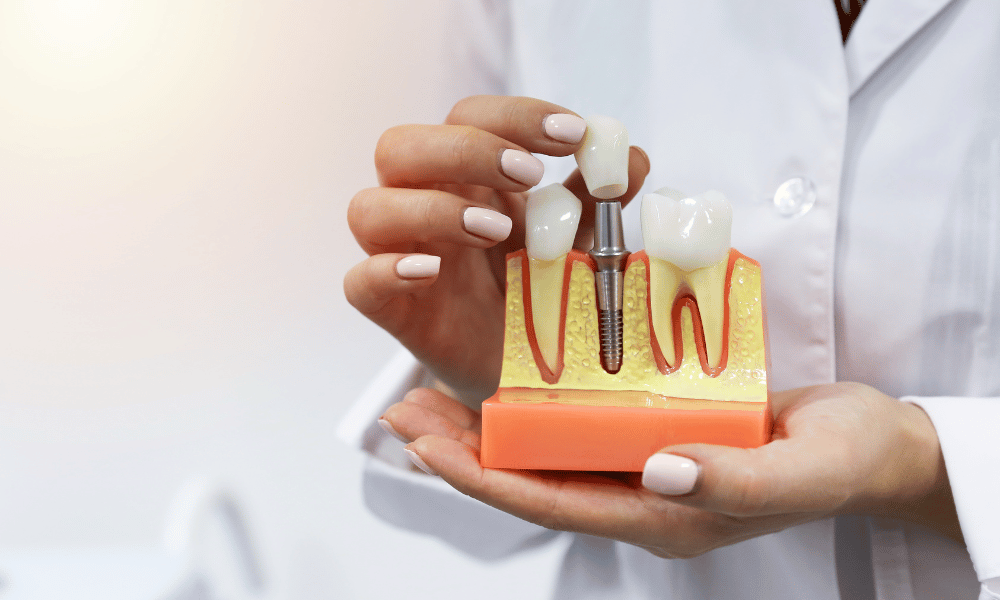Common Myths and Misconceptions About Dental Implants Debunked

Dental implants have revolutionized the field of restorative dentistry, offering a reliable and long-lasting solution for missing teeth. Despite their growing popularity, several myths and misconceptions about dental implants persist. These misunderstandings can deter individuals from considering dental implants in Fresno as a viable option.
In this blog, we will debunk some of the most common myths about dental implants, providing you with accurate information to make informed decisions about your oral health.
Myth 1: Dental Implants Are Painful
One of the most prevalent myths is that dental implants are extremely painful. While it’s true that any surgical procedure involves some degree of discomfort, modern dental implant techniques have significantly minimized pain during and after the procedure.
The Reality:
- Local Anesthesia: During the procedure, local anesthesia is used to numb the area, ensuring you feel no pain.
- Post-Surgery Care: Post-operative pain can typically be managed with over-the-counter pain relievers and is often described as similar to the discomfort experienced after a tooth extraction.
- Quick Recovery: Most patients report that the recovery process is much less painful than anticipated, with many returning to normal activities within a few days.
Myth 2: Dental Implants Are Not Worth the Cost
While it’s true that dental implants can be more expensive upfront compared to other tooth replacement options, such as dentures or bridges, focusing solely on the initial cost can be misleading.
The Reality:
-
- Longevity and Durability: Dental implants are designed to last a lifetime with proper care, whereas dentures and bridges may need to be replaced every 5-10 years.
- Improved Quality of Life: Implants function like natural teeth, offering superior comfort, stability, and confidence.
- Cost-Effective in the Long Run: When considering the longevity and reduced need for replacements, dental implants can be more cost-effective over time.
Myth 3: Dental Implants Are Only for the Elderly

Many people believe that dental implants are primarily for older adults who have lost their teeth due to aging. However, this is far from the truth.
The Reality:
- Suitable for Adults of All Ages: As long as the individual’s jawbone has stopped growing (usually by the age of 18), dental implants can be a suitable option for adults of any age.
- Various Causes of Tooth Loss: Tooth loss can occur due to various reasons, including injury, decay, or gum disease, affecting individuals well before they reach senior age.
Myth 4: Dental Implants Require Special Care
Some believe that dental implants require special and complicated maintenance routines. This misconception can discourage potential candidates who worry about the additional care.
The Reality:
- Similar to Natural Teeth: The maintenance of dental implants is very much like taking care of natural teeth.
- Regular Oral Hygiene: Brushing twice a day, flossing daily, and regular dental check-ups are sufficient to keep implants in good condition.
- No Special Products Needed: Unlike dentures, which may require adhesives or special cleaning solutions, dental implants do not need any special products for maintenance.
Myth 5: Dental Implants Can Cause Health Issues
Concerns about potential health risks associated with dental implants, such as infections or implant rejection, can cause hesitation.
The Reality:
- High Success Rate: Dental implants boast a success rate of approximately 95-98%, making them one of the most successful dental procedures.
- Biocompatible Materials: Implants are typically made from titanium, which is biocompatible and seldom causes adverse reactions.
- Proper Evaluation: A thorough evaluation and planning by your dentist can minimize risks. Remember, most complications arise when pre-existing conditions or improper care are overlooked.
Conclusion
Dental implants are a safe, effective, and durable solution for tooth replacement, but lingering myths and misconceptions can cloud judgment. So, understanding the realities behind these myths can help you make an informed decision about your oral health. In fact, it is best to always consult with your dental professional to discuss your specific needs and circumstances and to determine whether dental implants are the right option for you.









